The Imperial Guard was responsible for protecting the emperor of the Qing Dynasty. However, when the Qing Dynasty fell, where did this military force go?
Strict Standards to Become an Imperial Guard
The emperor stands above all, seated on the imperial throne, and his life is always in danger. Therefore, the emperor needs a team of martial officials for protection. The guards are the martial officials who undertake this important duty.
The Imperial Guards were a military force selected from the offspring of families belonging to the Eight Banners of Manchuria and Mongolia, responsible for guarding the gates of the Forbidden City and protecting the emperor and the royal family.
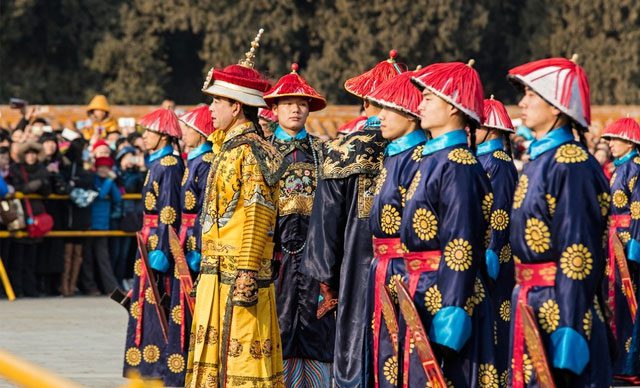
The Imperial Guard is the military responsible for guarding the gates of the Forbidden City and protecting the emperor and the royal family. (Photo: Sohu)
The guards in the Forbidden City were selected only from the Eight Banners of Manchuria, most of whom belonged to the Upper Three Banners: the Yellow Banner, the Blue Banner, and the White Banner. This was the closest protective force to the emperor.
The guard team in the Forbidden City was generally divided into four basic ranks, including:
- First-Class Guards, also known as Head Guards, ranked at the Third Grade, with a selection of 60 members.
- Second-Class Guards, ranked at the Fourth Grade, with a selection of 150 members.
- Third-Class Guards, ranked at the Fifth Grade, with a selection of 270 members.
- Fourth-Class Guards, also known as Blue Spirit Guards, ranked at the Sixth Grade, with a selection of 90 members.
- In addition, starting from the reign of Emperor Kangxi, there were three additional ranks of guards, but they were only selected from the imperial family.
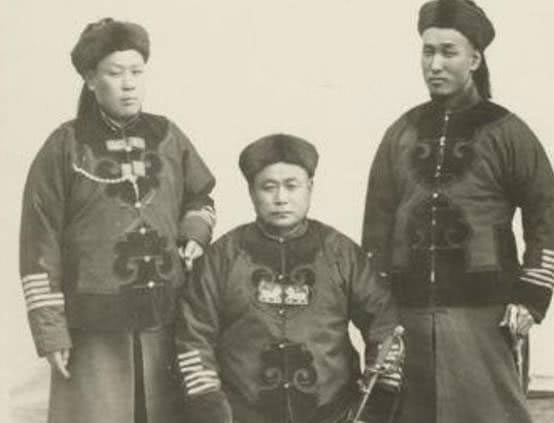
The Imperial Guards and the Qianqingmen Guards are distinct from guards elsewhere. They are personally chosen by the emperor. (Photo: Sohu)
Both the Imperial Guards and the Qianqingmen Guards are distinct from guards elsewhere. They are personally chosen by the emperor. They are often from noble families, or possess unique talents to be admitted. The Imperial Guards and the Qianqingmen Guards report directly to the Grand Minister of the Imperial Guards, rather than the Inner Guards like other guards. With such a prestigious level of oversight, it is clear that the Imperial Guards and Qianqingmen Guards were the two highest-ranking guards in the Qing Dynasty, receiving superior treatment including salaries based on rank and additional rewards during the birthdays of the emperor and empress.
Moreover, those who served as guards during the Qing Dynasty, especially the Imperial Guards, often had very bright prospects. Some notable figures who built their careers in the imperial court from this position include Zhao Qiao, Sege Tu, Hu Erhan, Long Kua Duo, and Heshen…
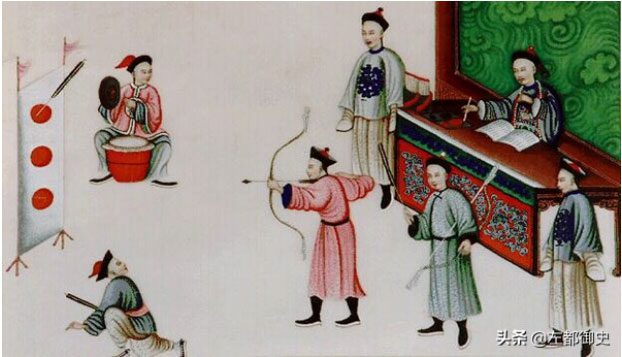
At that time, families with sons who became guards considered it a blessing. In fact, if their descendants were promoted to the Imperial Guards, they would hang a notice in their home to announce it as an honor.
This indicates that the class of guards was not just a common official role for guarding and protecting, as we often think, but their status in ancient society was relatively high.
Where Did the Imperial Guards Go After the Fall of the Qing Dynasty?
However, in 1900, eight countries including Britain, the United States, France, Germany, Russia, Japan, Austria, and Italy jointly invaded China, with the clear objective of directly attacking the capital city of Beijing. It wasn’t long before Beijing fell.
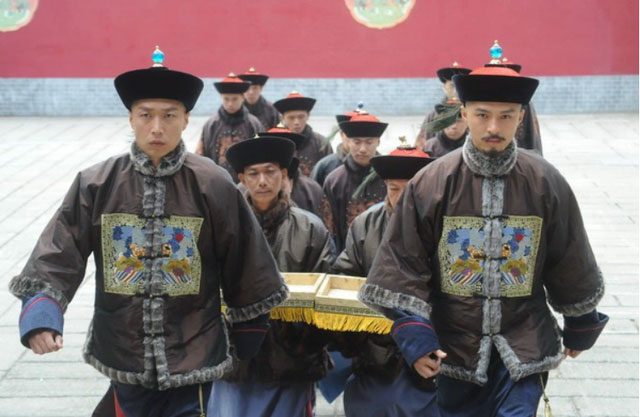
When the Eight-Nation Alliance attacked the capital, the guard troops did not protect the Forbidden City. (Photo: Sohu)
Empress Dowager Cixi, hearing news of the Eight-Nation Alliance’s impending entry into the palace, panicked and sent someone to the invaders’ embassy to plead for peace but was unsuccessful. Seeing this, Empress Dowager Cixi, along with Emperor Guangxu and many relatives and attendants, disguised themselves as commoners and quietly fled to Xi’an. The guard troops did not protect the Forbidden City; they even fled. Nobles and high-ranking officials also rushed to leave the capital. Beijing soon fell into chaos.
Empress Dowager Cixi ceded control of Beijing to the Western powers for over a year until a peace treaty was signed in 1901. The treaty included terms favorable to the West, forcing the Qing Dynasty to compensate 450 million taels of silver over 39 years, with an interest rate of 4% per year.
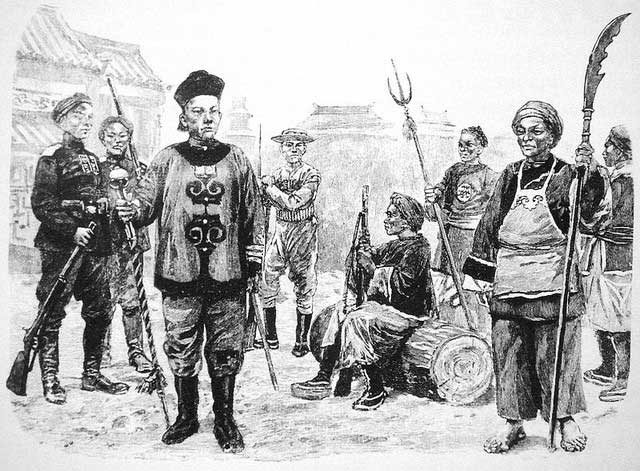
The regent Prince Chun decided to establish a new style of guard troops, also known as the New Army. (Photo: Sohu)
It wasn’t until Puyi ascended to the throne that Regent Prince Chun decided to establish a new style of guard troops, also known as the New Army. This time, the guards were carefully selected, consisting of the elite. Additionally, they were trained in Western combat methods and equipped with high-quality foreign weapons. The head of this new guard force was Zai Xun, Prince Chun’s younger brother, who was only 22 years old at the time.
However, just as the new guards completed their first training session, the Xinhai Revolution of 1911 broke out, aimed at overthrowing the Qing Dynasty. Zai Xun was too young and lacked combat experience, resulting in a devastating defeat for the guard troops. The Qing court had to seek help from Yuan Shikai, a high-ranking official who had allied with Empress Dowager Cixi and helped end the Hundred Days’ Reform of Emperor Guangxu to suppress the rebels.
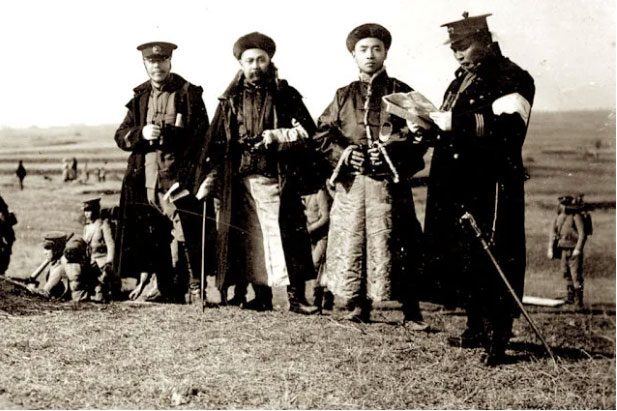
The new-style guard troops were trained in Western combat methods and equipped with high-quality foreign weapons. (Photo: Sohu)
Yuan Shikai had long had his eye on the new-style guard troops, so he certainly would not let this opportunity pass. Soon after, he requested that Puyi’s father withdraw from politics, forcing Prince Chun to resign from his position as Regent of the Great Qing. This opened the way for Yuan Shikai to establish a new trusted cabinet.
Subsequently, Yuan Shikai negotiated with the revolutionaries led by Sun Yat-sen and arranged for Puyi’s abdication, leading to the downfall of the Qing Dynasty.
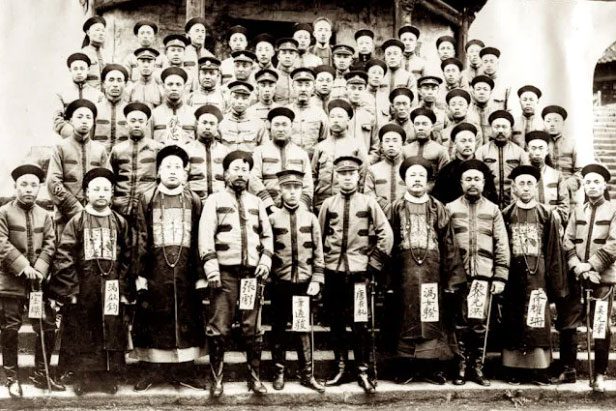
After the fall of the Qing Dynasty, the new-style guard troops chose to follow Yuan Shikai. (Photo: Sohu)
On the other hand, Yuan Shikai promised to ensure a prosperous future for the Imperial Guards, so they “stood by and watched” when the court faced turmoil. Yuan Shikai quickly appointed his close friend Feng Guozhang as the commander of the Imperial Guards to replace Zai Xun.
Yuan Shikai became the provisional president and later the president of the Republic of China; he even compromised with Japan to occupy part of the territory in exchange for their help to ascend to the throne as emperor. However, before this could come to fruition, Yuan Shikai died of “anger” after reigning as emperor for only 83 days. After Yuan Shikai’s death, there was no one within the Beiyang Army capable of leading or seizing control of the government, leading to fragmentation.


















































